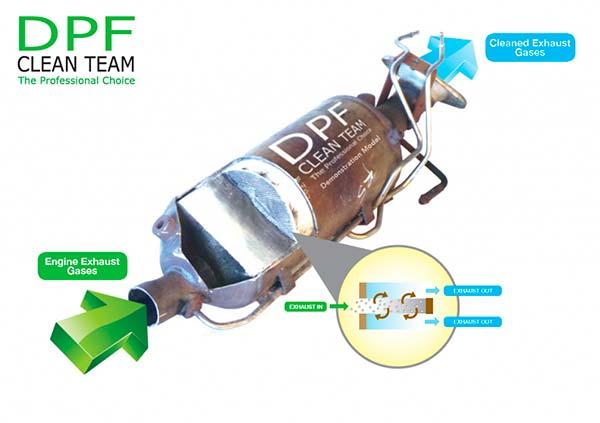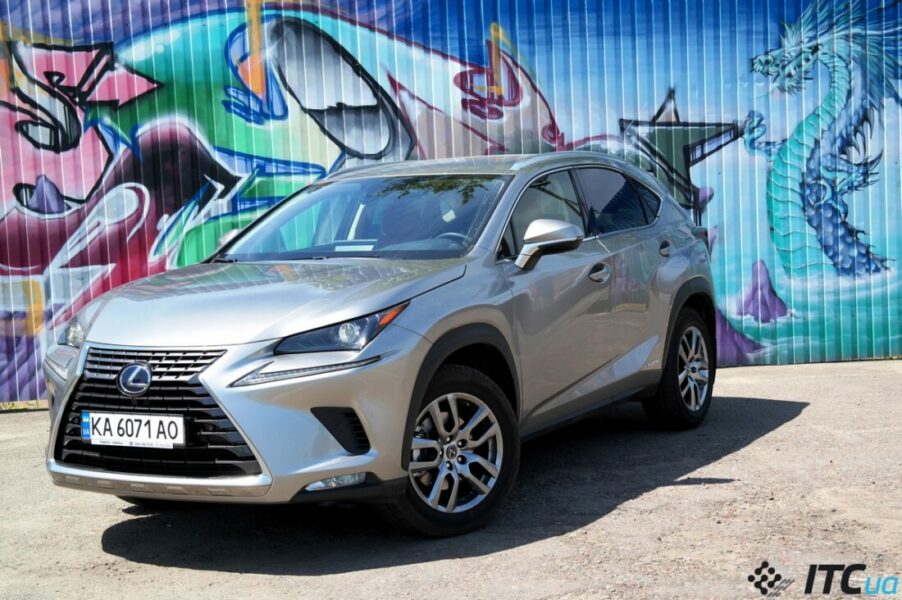
What is DPF?
Content
All diesel vehicles complying with the latest Euro 6 emission standards are equipped with a particulate filter. They are a vital part of the system that keeps your car's exhaust gases as clean as possible. Here we explain in detail what a diesel particulate filter is, how it works and why your diesel car needs it.
What is DPF?
DPF stands for Diesel Particulate Filter. Diesel engines work by burning a mixture of diesel fuel and air to generate energy that powers a car. The combustion process produces many by-products, such as carbon dioxide and soot particles, which pass through the car's exhaust pipe and are released into the atmosphere.
These by-products are harmful to the environment, which is why cars have various emission control systems that "clean up" the gases and particles that pass through the exhaust. The DPF filters soot and other particulate matter from the exhaust gases.
Why does my car need a DPF?
The exhaust produced when fuel is burned in a car engine can be harmful to the environment. Carbon dioxide, for example, contributes to climate change.
Other waste by-products, known as particulate emissions, contribute to the deterioration of air quality in areas with regular traffic congestion. Particulate emissions are tiny particulate matter such as soot that you can see as black smoke coming out of some older diesel vehicles. Some of these particles are made up of really nasty substances that cause asthma and other respiratory problems.
Even without a DPF, an individual car produces very little particulate matter. But the cumulative effect of thousands of diesel vehicles clustered together in a relatively small area like a city could pose a serious problem. It's critical to keep these emissions as low as possible, which is why your car needs a diesel particulate filter - it greatly reduces particulate emissions from the tailpipe.
If that makes diesel cars sound like an environmental disaster, it's worth bearing in mind that the latest models meet very stringent particulate emission limits. In fact, they produce them in such small quantities that they are on par with gasoline cars in this respect, emitting only 0.001g per kilometer of travel. It's also worth remembering that diesel-powered vehicles produce less carbon dioxide than gasoline-powered vehicles and provide better fuel economy.
What cars have a particulate filter?
Every diesel vehicle that complies with current Euro 6 emission standards has a particulate filter. Indeed, without it it is impossible to meet these standards. Euro 6 came into effect in 2014, although many older diesel vehicles also have a particulate filter. Peugeot was the first car manufacturer to equip its diesel engines with a particulate filter back in 2004.
How does the DPF work?
The DPF just looks like a metal tube, but there are tricky things going on inside that we'll get to shortly. The DPF is often the first part of a car's exhaust system, located immediately after the turbocharger. It can be seen under the hood of some cars.
The DPF contains a fine mesh that collects soot and other particulate matter emitted from the exhaust. It then periodically uses the heat to burn off the accumulated soot and particulate matter. During combustion, they break down into gases that pass through the exhaust and dissipate in the atmosphere.
The burning of soot and particulate matter is known as "regeneration". There are several ways the DPF can do this. Most of the time they use the heat accumulated from the exhaust gases. But if the exhaust isn't hot enough, the engine can use some extra fuel to generate more heat in the exhaust.
How to care for a particulate filter?
There is an opinion that particulate filters are prone to failure. It can happen, but in fact, they are no more likely to fail than any other part of the car. They just need proper maintenance, which some people don't realize.
Most car trips only last a few miles, which is not enough time for a car's engine to reach its ideal operating temperature. A cold engine runs less efficiently and produces more soot. And the exhaust doesn't get hot enough for the diesel particulate filter to burn off the soot. A few thousand miles of short trips, which can easily add up if you rarely travel outside your area, can lead to clogged and failed diesel particulate filters.
The solution is actually very simple. Just go on a long trip! Drive at least 1,000 miles every 50 miles or so at a reasonably high speed. This will be enough for the particulate filter to go through a regeneration cycle. Dual carriageways, 60 mph roads and motorways are best suited for such trips. If you can make a day out of it, so much the better!
DPF cleaning fluids are available as an alternative. But they can be expensive and their effectiveness is questionable.
If you regularly make long trips, you are unlikely to have problems with your car's particulate filter.
What happens if the DPF fails?
The DPF is more likely to fail if it becomes clogged as a result of repeated short trips. You will see a warning light on your car's dashboard if the particulate filter is in danger of clogging. In this case, your first step is to go on a long high-speed ride. This is to generate the exhaust heat needed by the DPF to go through the regeneration cycle and clean itself. If it works, the warning light will turn off. If not, take the car to a garage where other methods can be used to clean the particulate filter.
If the diesel particulate filter becomes completely clogged and starts to fail, black smoke will come out of the exhaust pipe and the car's acceleration will become sluggish. Exhaust gases can even get into the interior of the car, which is dangerous. At this point, the DPF needs to be replaced, which is a very costly job. In most cases, you will see a bill of at least £1,000. By comparison, these long, fast rides seem like a bargain.
Do petrol cars have diesel particulate filters?
Gasoline engines also produce soot and particulate matter when they burn fuel, albeit at much lower levels than many diesel engines. However, the latest legally binding standards for soot and particulate emissions are so stringent that the latest gasoline vehicles need a PPS or a gasoline particulate filter to meet them. PPF works exactly the same as DPF.
Do diesel particulate filters affect the performance or economy of a car?
Contrary to what some people think, diesel particulate filters do not affect vehicle performance or fuel consumption.
Theoretically, a diesel particulate filter can reduce engine power because it restricts the flow of exhaust gases. This can choke the engine and result in reduced power. In reality, however, the amount of power a modern engine produces is regulated by its computer, which changes how the engine works to compensate for the filter.
The engine computer also makes sure that the filter does not reduce fuel economy, although the situation can worsen if the filter starts to clog.
The only effect of a diesel particulate filter that you may notice is related to exhaust noise, and in a good way. It will be quieter than a car without a filter.
There are many quality new and used cars to choose from in Cazoo. Use the search feature to find what you like, buy it online and have it delivered to your door or choose to pick up from your nearest Cazoo Customer Service Center.
We are constantly updating and expanding our range. If you can't find one today, check back later to see what's available or set up promotional alerts to be the first to know when we have vehicles that suit your needs.
